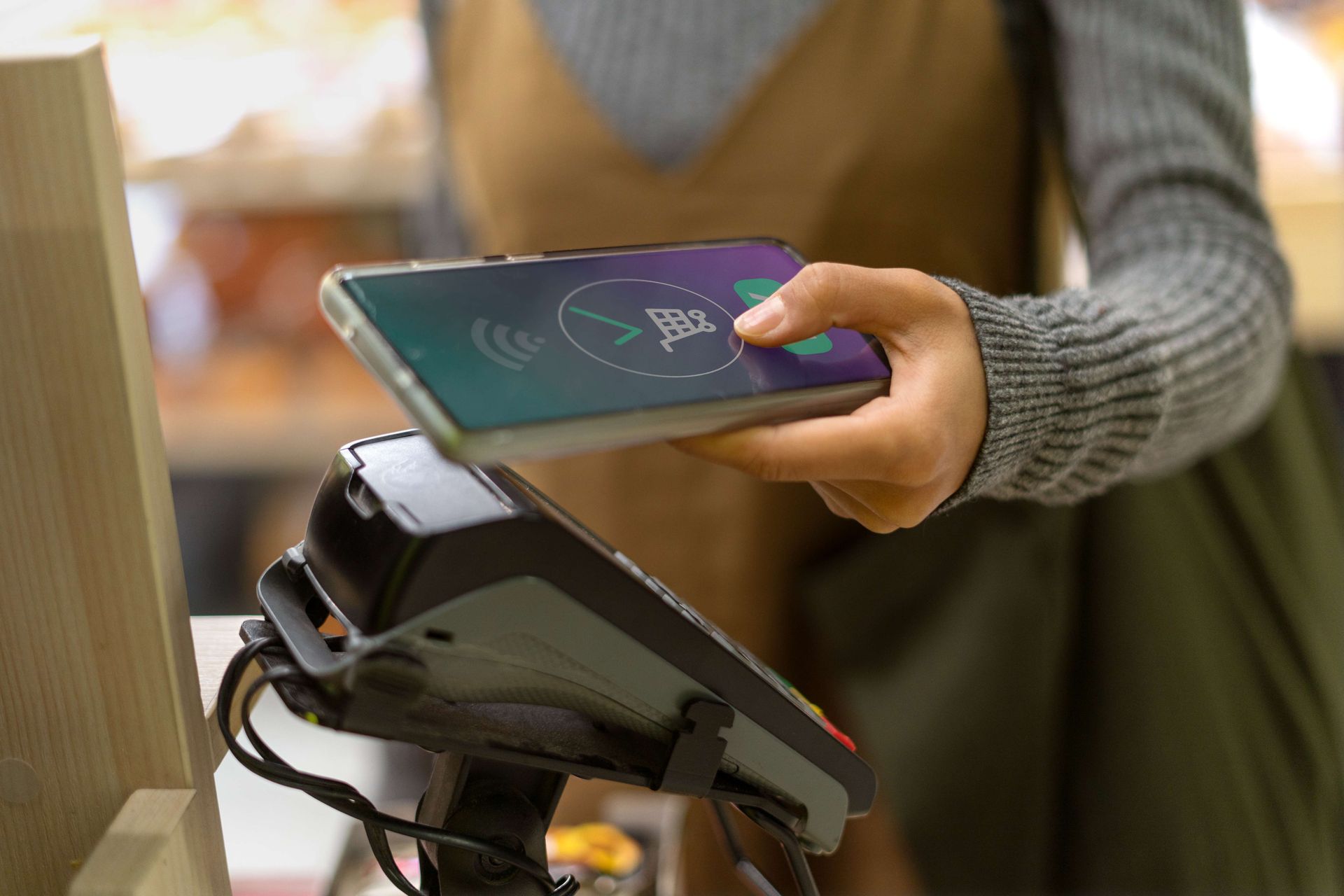In today's dynamic retail industry, one of the most pressing challenges that businesses face is the labor shortage crisis. With shifting demographics, evolving employee expectations, and increasing competition for talent, retailers are struggling to find qualified workers to meet their operational needs. This labor shortage crisis has far-reaching implications for businesses across the globe.
Addressing this critical issue is essential for the long-term success of retail businesses. By understanding the labor shortage crisis and its impact, organizations can take proactive steps to navigate this challenging landscape. Educating ourselves and exploring innovative solutions is key to overcoming this hurdle and emerging as leaders in the industry.
This blog post aims to shed light on the labor shortage crisis in the retail industry and the importance of finding effective solutions. By diving into the implications of this crisis, we can gain a deeper understanding of the challenges faced by businesses today. Moreover, we will explore thought-provoking insights and strategies to address the labor shortage crisis and elevate our approach to workforce management.
Through this journey, we aim to foster a community of thought leaders who are passionate about transforming the retail industry. By sharing knowledge, ideas, and best practices, we can collectively drive positive change and pave the way for a future where businesses thrive amidst the labor shortage crisis.
"Join us as we unravel the complexities of the labor shortage crisis, explore innovative approaches, and embark on a quest to become thought leaders in the retail industry. Together, we can reshape the future of workforce management and inspire a new era of success in retail.Contact us to know more."
The Impact of Labor Shortage on Retail Businesses

Increased operational costs and reduced profitability
The labor shortage crisis poses significant challenges for retail businesses, starting with increased operational costs. With a limited pool of available workers, retailers and restaurant owners often find themselves in a competitive hiring environment, leading to higher wages and increased expenses associated with recruitment and training. These rising costs put pressure on profit margins and can hinder the financial stability of businesses.
Customer service challenges and impact on customer experience
One of the critical areas affected by the labor shortage is customer service. Insufficient staffing levels result in longer wait times, reduced personalized attention, and a decline in overall service quality. In today's customer-centric retail landscape, where exceptional experiences are key to customer loyalty and satisfaction, businesses that struggle to meet these expectations risk losing customers to competitors.
Limitations on business growth and expansion
The labor shortage crisis also imposes limitations on the growth and expansion prospects of retail businesses. Insufficient staffing impedes the ability to open new stores, extend operating hours, or expand product lines. Retailers may miss out on lucrative opportunities, lose market share, and find it challenging to meet the evolving demands of customers. The inability to scale operations due to labor shortages hampers business growth potential and puts companies at a competitive disadvantage.
By recognizing and understanding the various impacts of the labor shortage on retail businesses, industry leaders can start exploring strategies to mitigate these challenges. In the following sections, we will delve into thought-provoking insights and innovative solutions that can help overcome the labor shortage crisis, elevate operational efficiency, and enhance the overall customer experience.
The Rise of Retail Automation and Technology
Role of technology in overcoming labor shortage challenges
In response to the labor shortage crisis, retail businesses are turning to automation and technology as a means of addressing workforce gaps. Technology plays a pivotal role in optimizing operations, streamlining processes, and reducing reliance on manual labor. By embracing innovative solutions, retailers can overcome the challenges posed by the labor shortage and achieve greater efficiency and productivity.
Benefits of retail automation and self-service solutions
Retail automation and self-service solutions offer a myriad of benefits for businesses grappling with the labor shortage. These technologies enable retailers to enhance operational efficiency, improve customer experiences, and drive growth. By implementing self-checkout systems, automated inventory management, and other advanced solutions, retailers can reduce labor dependency, expedite processes, and reallocate resources to more value-added tasks.
Introduction to Cyntra and its innovative retail technology solutions
Among the pioneers in the field of retail technology is Cyntra. With a deep understanding of the challenges faced by the industry, Cyntra has developed cutting-edge solutions that revolutionize retail operations and help businesses thrive amidst the labor shortage crisis. Their portfolio of innovative products includes advanced self-service kiosks, real-time analytics tools, and streamlined inventory management systems.
Cyntra's commitment to leveraging technology to enhance the retail experience sets them apart as industry leaders. By harnessing features like facial recognition, voice inputs, and RFID scanning, Cyntra enables retailers to achieve rapid operational value, improve checkout experiences, and optimize inventory management. Their solutions empower businesses to adapt to the evolving retail landscape and meet the demands of modern consumers.
In the subsequent sections of this blog, we will dive deeper into Cyntra's innovative solutions, exploring their functionalities, benefits, and how they have transformed retail businesses. Join us as we uncover the possibilities offered by Cyntra's technology and how it can help navigate the labor shortage crisis, elevate operations, and pave the way for a more prosperous future in the retail industry.
Cyntra's Approach to Solving the Labor Shortage Problem
Overview of Cyntra's self-service kiosk solutions
Cyntra addresses the labor shortage problem with their state-of-the-art self-service kiosk solutions. These innovative kiosks streamline operations, reduce reliance on staff, and enhance the overall customer experience. By offering intuitive and user-friendly interfaces, Cyntra's kiosks empower customers to independently navigate through their retail journey, from browsing products to making seamless transactions.
Facial recognition for personalized customer experiences
One of the standout features of Cyntra's self-service kiosks is facial recognition technology. By leveraging facial recognition, retailers can provide personalized experiences to their customers. Returning customers can be recognized instantly, allowing for tailored recommendations, customized offers, and a seamless checkout process. This technology not only enhances convenience but also fosters customer loyalty and satisfaction.
Voice inputs for seamless interaction and ordering
Cyntra's self-service kiosks also incorporate voice inputs, enabling customers to interact with the system effortlessly. Voice recognition technology ensures a smooth and intuitive ordering process, allowing customers to speak their preferences, select items, and complete transactions with ease. This feature caters to a range of customers, including those with accessibility needs, and elevates the overall convenience of the self-service experience.
RFID scanning for efficient inventory management
Efficient inventory management is crucial for retail businesses facing labor shortages, and Cyntra's self-service kiosks address this challenge with RFID scanning capabilities. By leveraging RFID technology, retailers can accurately track inventory levels, monitor product availability in real-time, and automate replenishment processes. This streamlines operations, minimizes stockouts, and ensures that customers can access the products they desire, contributing to a seamless and satisfying shopping experience.
Through these powerful features, Cyntra's self-service kiosks not only alleviate the impact of the labor shortage crisis but also optimize operations and enhance customer satisfaction. The integration of facial recognition, voice inputs, and RFID scanning showcases Cyntra's commitment to driving innovation in the retail industry and transforming the way businesses operate in an increasingly challenging landscape.
In the upcoming sections, we will delve deeper into the benefits and real-world impact of Cyntra's self-service kiosk solutions, examining how they have revolutionized retail businesses, improved operational efficiency, and provided a competitive edge in the face of labor shortages. Join us as we explore the possibilities and discover how Cyntra is redefining the retail experience.
Benefits and Results of Cyntra's Solutions
Increased operational efficiency and reduced labor costs
By implementing Cyntra's solutions, businesses experience a significant boost in operational efficiency. The self-service kiosk technology streamlines processes, reduces the need for manual labor, and enables businesses to serve customers more efficiently. With tasks like checkout, inventory management automated, purchasing control, and accounting essentials, retailers can allocate resources effectively, optimize staffing levels, and reduce labor costs, ultimately improving the bottom line.
Improved customer experience and satisfaction
Cyntra's solutions are designed to enhance the customer experience and drive satisfaction. The seamless and intuitive self-service kiosk interface empowers customers to navigate the retail journey with ease, minimizing wait times and providing greater control over their interactions. With features like facial recognition and voice inputs, Cyntra enables personalized experiences, tailored recommendations, and a hassle-free checkout process, leaving a positive impression on customers and fostering loyalty.
Real-world examples and success stories of businesses using Cyntra
To showcase the tangible impact of Cyntra's solutions, let's look at a real-world example: Shoppers Stop. Through Cyntra's Swyft mPOS solution, Shoppers Stop processed over $8.5 million in transactions in under a year. This success story highlights the transformative power of Cyntra's technology in enabling retailers to achieve rapid operational value, streamline processes, and elevate the customer experience. It serves as a testament to the efficacy and reliability of Cyntra's solutions in driving tangible business outcomes.
These are just a few examples of the benefits and results that businesses can achieve by leveraging Cyntra's solutions. The combination of increased operational efficiency, reduced labor costs, improved customer experience, and real-world success stories positions Cyntra as a trusted partner for retailers seeking to thrive in the face of labor shortage challenges. With their innovative technology and proven track record, Cyntra empowers businesses to optimize their operations, exceed customer expectations, and stay ahead in the competitive retail landscape.
Future Outlook and Impact of Cyntra's Solutions

Scalability and adaptability of Cyntra's technology
Cyntra's solutions are built with scalability and adaptability in mind. As retail businesses continue to evolve, Cyntra's technology can seamlessly integrate with existing systems and accommodate future growth. Whether it's expanding to new locations, introducing new product lines, or adjusting to changing customer preferences, Cyntra's solutions provide the flexibility needed to support businesses at every stage of their journey.
Potential for widespread adoption and industry transformation
With the labor shortage crisis persisting and the need for operational efficiency becoming increasingly critical, Cyntra's solutions have the potential to revolutionize the retail industry. By addressing key pain points such as labor shortage, long queues, and lost business opportunities, Cyntra enables businesses to thrive in a rapidly changing landscape. The adoption of Cyntra's technology can not only enhance individual business performance but also contribute to the overall transformation of the industry, driving innovation and reshaping customer expectations.





